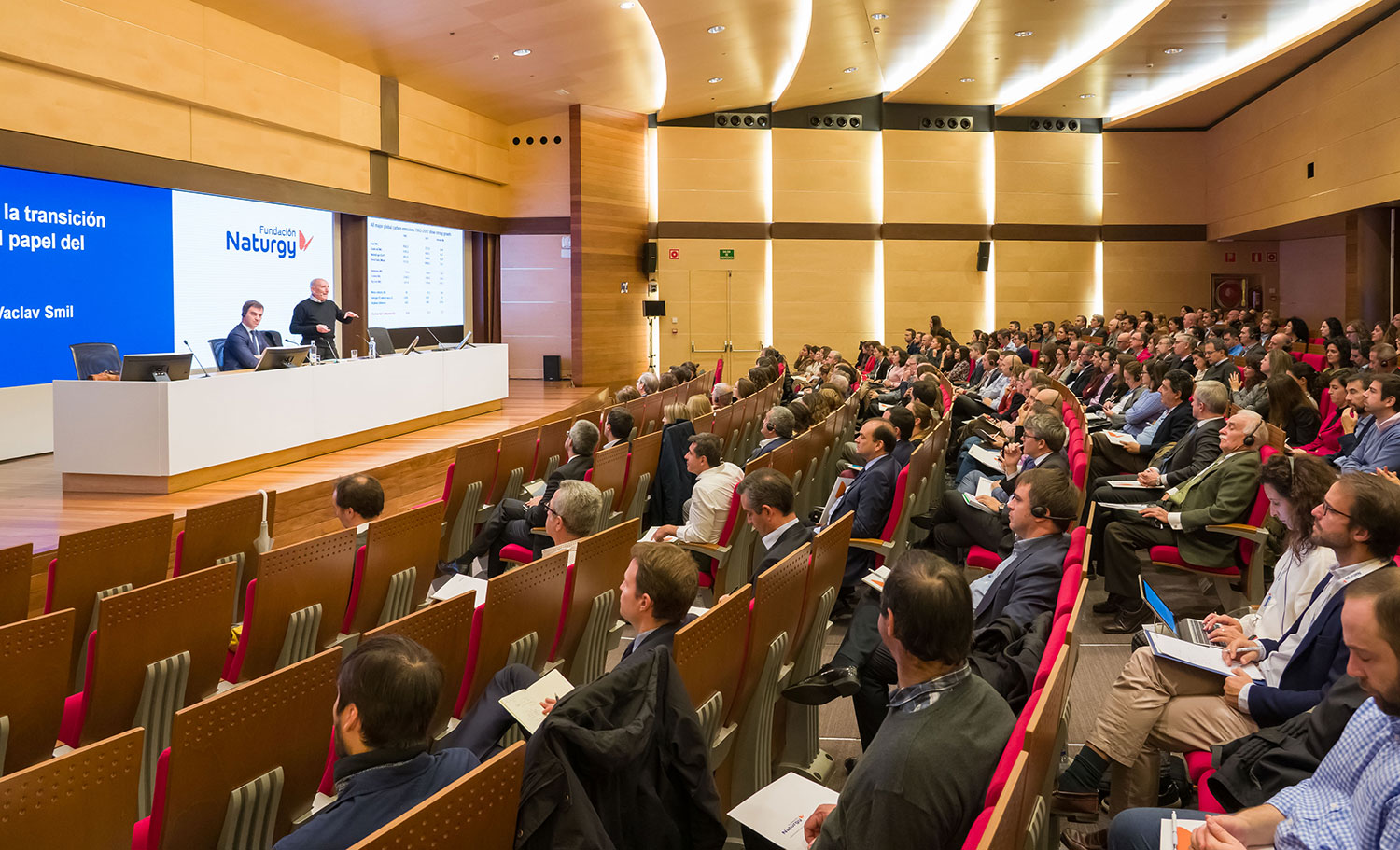Vaclav Smil: “Replacing fossil fuels with renewable energies is a task that will inevitably occupy us for several generations.”
The scientist, ranked as one of the world’s top 100 thinkers according to ‘Foreign Policy’, said that “we need an accelerated energy transition to avoid excessive global warming.”
Smil emphasised the role of natural gas in decarbonisation and energy efficiency.

“We have a global energy supply system that relies heavily on fossil fuels; replacing it with new arrangements based on renewable energy is a task that will inevitably occupy us for generations to come.” The scientist and Professor Emeritus of the University of Manitoba, Vaclav Smil, made this statement ‘n Madrid today, at the second session of the Naturgy Foundation’s “talks on” series.
Smil, ranked as one of the world’s top 100 thinkers according to ‘Foreign Policy’, said the energy transition will still take several decades and highlighted the environmental imperative leading us to carry it through. “The previous transitions were carried out for economic reasons. Now there is no need for raw materials. There is a lot of coal and oil and the resources are cheap. This transition is taking place for one reason and that is we simply don’t want to generate as much carbon.”
For Smil, the main global challenges are “to reduce the use of coal in the short term, increase the use of natural gas, reduce energy intensity and increase efficiency”. And he mentioned an additional energy goal in this longer-term transition: “to displace the fossil carbon used in the pillars of our civilisation: the production of primary iron, cement, ammonia and plastics. We have no large-scale alternatives that can be deployed immediately.”
An advocate of renewable energies as well, he called for an exercise in realism in the implementation forecasts. The scientist explained that there are important differences between regions and countries, and for that reason we cannot simply just rely on renewables, because there are places on the planet where there is no sun or wind for long periods of time. “Not all places are suitable for renewable energy, so it is important to keep in mind that this is where natural gas plays a role,” he said.
Accelerated transition
In this context, Smil stressed that “an accelerated transition is needed to avoid excessive global warming and, therefore, the only measure of success is global”. He recalled that there are 150,000 coal plants across the world, and that China is still building. “The only way to achieve energy transition is to reduce this number of facilities to 95,000. We have to be very realistic about the future of global warming and we have to balance it out as much as possible,” he said.
This expert also stated that “given the disparities in energy consumption between rich countries and those that are modernising, the only possible option is to reduce energy consumption in the rich countries”.
In the current context, Smil opted for natural gas as the best option, due to its characteristics and flexibility. “It is a very flexible fuel, and can be used in both homes and industries, even in blast furnaces,” he said, calling for improved extraction processes to minimise leaks and avoid unnecessary emissions.
Referring to Spain, he said that “it is lagging behind” and advised that it should “further promote the use of natural gas to reach the same level as other European countries, to be a modern country”.
Smil explained that there has been an increase in all fossil fuels over recent years and that CO2 emissions have increased by almost 60% in the last 30 years. In the light of these data, he referred to the complexity of making the IPCC forecast of reducing the temperature by 1.5 degrees a reality. “How is it going to be reduced to the set level? Are we going to stop making cement, are we going to stop flying? This temperature reduction target is not going to be possible, because it would require a sudden reversal of the upward trends of the past.”
About Vaclav Smil
Smil is a scientist who has dedicated his professional career to interdisciplinary research in the fields of energy, environmental and population change, food production and nutrition, technical innovation, risk assessment and public policy. A favourite author of Bill Gates, he has published 40 books and almost 500 articles on these topics.
He is a Professor Emeritus of the University of Manitoba and a member of the Royal Society of Canada (Science Academy). He was named as one of the Top 100 Global Thinkers by ‘Foreign Policy’ in 2010 and was appointed into the Order of Canada in 2013. He has worked as a consultant for many US, EU and international institutions.
Share